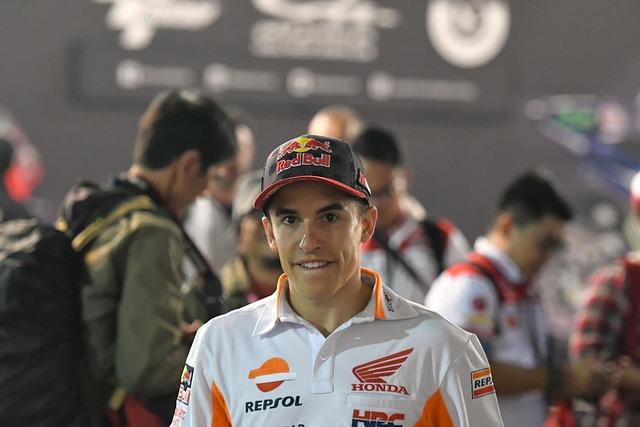Tech industry titans Marc Benioff and Elon Musk made headlines once again, this time for their presence at a controversial White House dinner alongside Saudi Crown Prince Mohammed bin Salman. The gathering has sparked intense debate due to the crown prince’s widely reported involvement in human rights abuses and the 2018 murder of journalist Jamal Khashoggi. As global scrutiny intensifies, the attendance of prominent American business leaders at this event raises critical questions about the intersection of commerce, politics, and ethics on the world stage.
Marc Benioff and Elon Musk’s Presence at Controversial White House Dinner Sparks Debate
Tech giants Marc Benioff, CEO of Salesforce, and Elon Musk, CEO of Tesla and SpaceX, have ignited controversy by attending a White House dinner alongside Saudi Crown Prince Mohammed bin Salman, a figure heavily criticized for his alleged involvement in human rights violations and the murder of journalist Jamal Khashoggi. This high-profile meeting has drawn sharp criticism from human rights advocates and political commentators alike, who argue that their presence tacitly legitimizes a regime accused of brutal repression.
The event underscores the complex intersection of business, politics, and ethics on the global stage. Supporters of Benioff and Musk maintain that engagement is necessary for fostering dialogue and economic progress, yet opponents highlight a worrying trend of corporate leaders overlooking serious moral concerns for strategic gains. Below is a brief overview of the key points fueling the debate:
- Ethical Dilemma: Participation raises questions about complicity in overlooking human rights abuses.
- Business Interests: Potential for lucrative partnerships and expanding influence in the Middle East.
- Political Significance: White House support signals a diplomatic shift despite public backlash.
- Public Reaction: Social media and advocacy groups are demanding accountability and transparency.
| Figure | Role | Criticism |
|---|---|---|
| Marc Benioff | Salesforce CEO | Accused of ethical compromise |
| Elon Musk | Tesla & SpaceX CEO | Criticized for political insensitivity |
| Saudi Crown Prince | Regime Leader | Linked to human rights abuses |
Analyzing the Political and Ethical Implications of Engagement with Saudi Arabia’s Crown Prince
Engagements between Western business magnates and controversial political figures often raise profound questions about the intersection of ethics and diplomacy. The presence of prominent entrepreneurs like Marc Benioff and Elon Musk alongside Saudi Arabia’s Crown Prince at a White House dinner signals a complex balancing act where economic interests frequently overshadow human rights concerns. Critics argue that such interactions can be perceived as implicit endorsements of regimes implicated in egregious violations, including the assassination of journalist Jamal Khashoggi. Conversely, supporters contend that dialogue provides opportunities for influence and potential reform, underscoring the strategic calculus behind these high-profile encounters.
Key considerations shaping public discourse include:
- Diplomatic optics: The global message conveyed when esteemed figures normalize relations with contentious leaders.
- Business interests: Potential commercial benefits tied to future investments in the Middle East.
- Ethical responsibility: How corporations and individuals weigh moral accountability against pragmatic strategy.
- Influence versus complicity: The fine line between leveraging access for change and enabling repression.
| Aspect | Potential Benefit | Possible Drawback |
|---|---|---|
| Economic Partnerships | Expanded market access | Complicity in authoritarianism |
| Political Influence | Leverage for reforms | Legitimization of abuses |
| Public Perception | Strengthened leadership image | Backlash from advocacy groups |
Recommendations for Tech Leaders Navigating High-Stakes International Diplomacy
In highly sensitive diplomatic environments, tech executives must balance innovation with geopolitical awareness. Prioritizing transparency and ethical frameworks before committing to engagements with controversial figures is crucial. These leaders should advocate for thorough stakeholder consultations and maintain open channels with government advisors to avoid reputational risks. Equally important is developing a clear communication strategy that addresses public concerns without compromising ongoing diplomatic efforts.
Furthermore, understanding cultural nuances and respecting international protocols can prevent unintended diplomatic friction. The following table outlines key considerations for tech leaders entering high-stakes international forums:
| Consideration | Description | Recommended Action |
|---|---|---|
| Ethical Due Diligence | Assess partners’ human rights and political records | Commission independent audits |
| Strategic Alignment | Ensure diplomatic goals align with corporate values | Hold internal alignment meetings |
| Public Messaging | Manage narrative around participation | Engage PR specialists early |
| Risk Mitigation | Prepare for potential backlash | Develop crisis response protocols |
- Engage multidisciplinary teams combining tech, legal, and diplomatic expertise.
- Monitor evolving geopolitical landscapes to adapt strategies promptly.
- Practice cultural humility to foster mutual respect and constructive dialogue.
To Conclude
The attendance of high-profile tech leaders like Marc Benioff and Elon Musk at a White House dinner with the Saudi Crown Prince has sparked intense debate over the intersection of business, politics, and human rights. As scrutiny grows over the implications of such engagements, the events underscore the challenging dynamics faced by global entrepreneurs navigating geopolitics in today’s complex landscape. Further developments and responses from the involved parties will be closely watched as the conversation continues.









